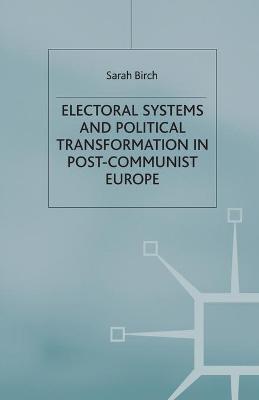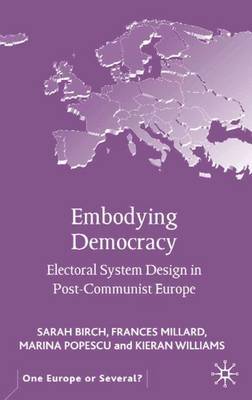One Europe or Several?
2 total works
Electoral Systems and Political Transformation in Post-Communist Europe
by S. Birch
Published 1 January 2003
Electoral Systems and Political Transformation in Post-Communist Europe assesses the influence of electoral systems on political change in 20 post-communist European states. The main finding is that electoral institutions have systematic effects on the formation of representative structures. 'Party-enabling' aspects of electoral laws such as list proportional representation tend to foster popular inclusion in politics and institutionalized party systems, whereas 'politician-enabling' rules such as single-member districts and ballots that allow voters to select individuals often favour the development of weakly structured systems and high levels of popular exclusion from the representative process.
Embodying Democracy analyzes the politics of electoral reform in eight post-communist states including Poland, Hungary, the Czech Republic, Slovakia, Romania, Bulgaria, Russia and Ukraine. By exploring the multiple factors that shaped the design of electoral institutions during the first ten years of post-communist transition, it accounts for an important element of the post-communist reform process and illuminates general features of institutional design in post-transition states.

